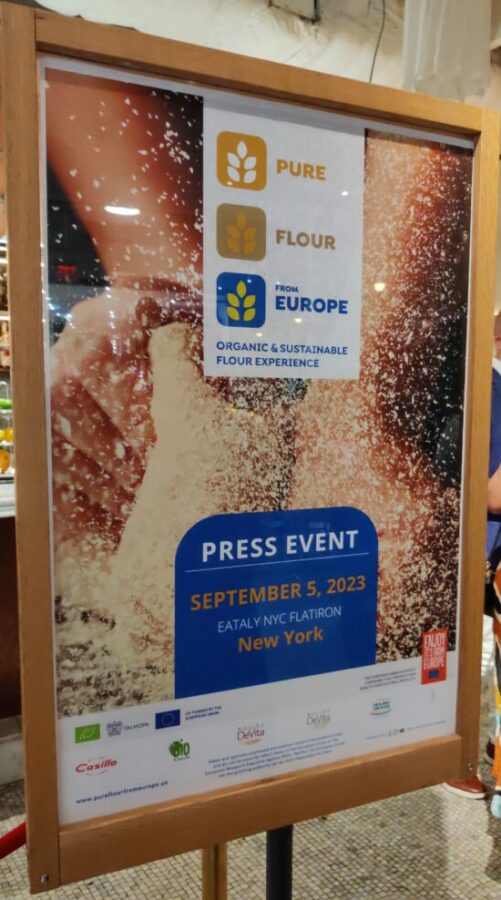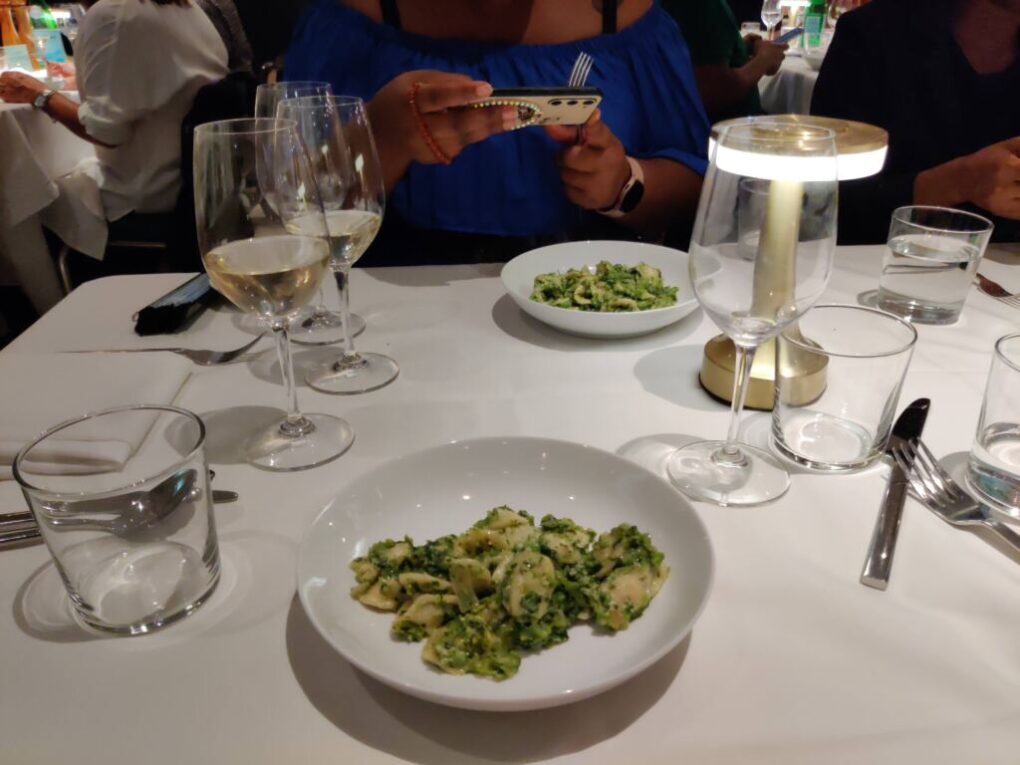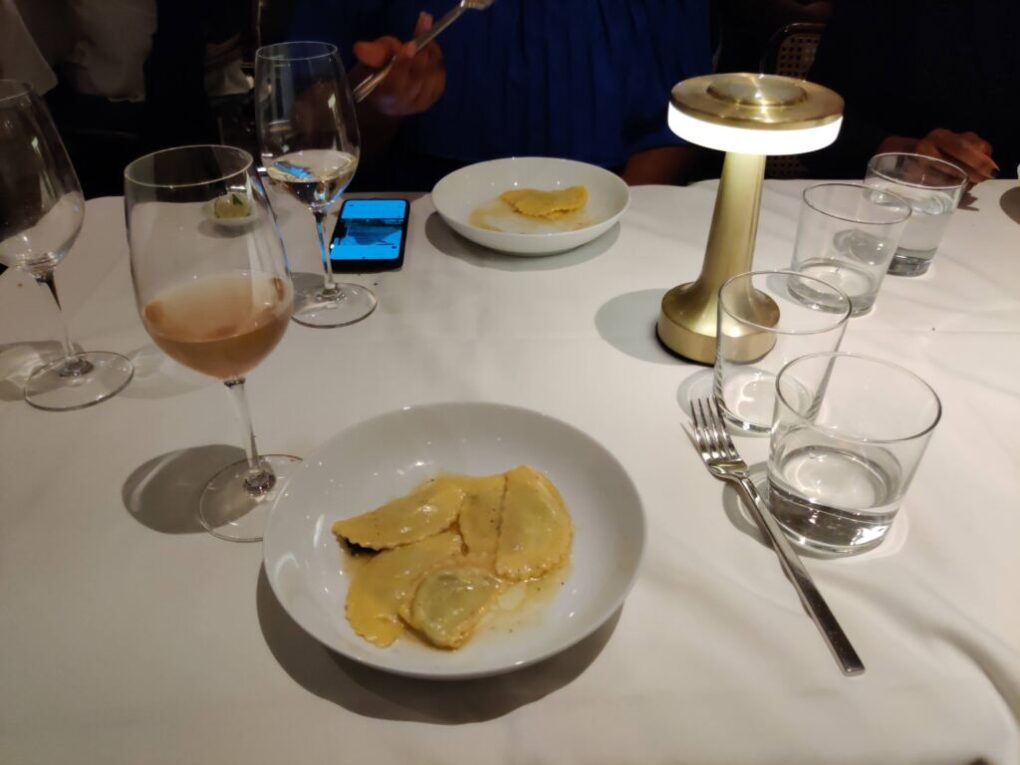
Italmopa (Associazione Industriali Mugnai d’Italia (National Association of Milling Industries in English)), is an Italian-based association representing the country’s milling and wheat processing industry. Italmopa was established in 1958, and currently represents 82 companies that are involved in the production of wheat flour and related products in Italy. Italmopa is dedicated to ensuring the quality and safety of organic fine and soft-milled wheat, as well as coarser hard-wheat flour products in Italy, Europe, the United States, and Canada. Italmopa is also dedicated to promoting the collection of Italian and global brands that produce quality soft and hard wheat flours. Italmopa strives to ensure that all soft and hard wheat flours that they endorse meet or exceed the high standards of quality and stringent health guidelines set forth by both the Association and its partner, the European Union.
These quality standards include ensuring that the soft and hard wheat is organically farmed using absolutely no harsh pesticides and other chemical agents. It also guarantees that all the seeds planted must be naturally derived and free of chemicals, and that the soft and hard wheat that is produced is cultivated according to the “alternative principles” method of farming, a production process defined by rotating field plantings, observing growing cycles, nourishing the soil with natural fertilizers, and maintaining the health of the land and the surrounding environment. Their “Pure Flour of Europe” campaign seeks to educate the public about the importance of incorporating organic wheat flours and other products into daily diets as part of a healthy lifestyle. The “Pure Flour of Europe” campaign came to New York City during the first week of September to give a select group of media an opportunity to learn about Italian organic soft and hard wheat flours and taste some dishes crafted from these special flours.
Some of Europe’s leading producers of soft and hard wheat flours were in attendance, including Molino Grassi. Molino Grassi, established in 1934, was the first wheat flour producer to make organic flour. The company works regularly with local farmers to cultivate the highest quality pure Italian wheat for soft and hard flour production. The company has also been collaborating with leading universities since 1985 to produce the best possible soft and hard flours. It marked a milestone of record exports this year.

Many types of grains, (including wheat, corn, barley, rice, and rye) fall under the Latin genus classification Triticum. Two of the most prevalent types of wheat are soft wheat, and hard wheat. Soft and hard wheat flours have distinct properties that make them ideal for preparing different types of food.
Soft Wheat Flour (Triticum Aestivum):
Soft wheat flours contain less protein, and higher fat, starch, iron, vitamin B, and phosphorous than hard wheat flours. Soft wheat flours also have a finer texture, and a lower gluten content. Soft wheat flour is typically used to make soft breads, and desserts with a moist and delicate crumb, including cakes, pastries, and biscuits.
Durum Wheat Flour (Triticum Durum):
Durum wheat flour is made from durum wheat. Durum wheat is a hard wheat variety that contains high levels of protein, water, gluten, and calcium.
This type of flour is primarily used to make pastas like spaghetti and macaroni. Its inherently high level of gluten helps it maintain the integrity of the pasta shapes into which it is formed during the cooking process.
Durum wheat flour is also used to bake bread. It is often combined with other flours to enhance the dough’s elasticity and structure. Semolina is a type of high-protein, coarse wheat flour that is derived from durum wheat. Semolina is commonly used to make pastas such as fusilli and penne. Semolina is also used for dusting pizza pans and baking sheets to prevent sticking, and give bread and pizza crusts a rustic texture.

A tasting menu prepared by Chef Lesley Rivera of Bar Milano in Eataly Flatiron NYC featuring breads, pastas, and desserts crafted from organic soft, durum, and semolina wheat flour showcased the vital role that high quality wheat flour plays in any recipe. The breads were crisp and airy. and the pastas were light and supple. The entire meal was satisfying, but without that heavy, weighted-down feeling that tends to happen after consuming over-processed foods.


A pappa al pomodoro (thick Tuscan-style soup made with fresh tomatoes, organic Italian semolina bread, fresh basil. and olive oil) was also served.





A second dessert of chocolate ice cream and brown butter topped with organic semolina streusel rounded out the perfectly executed meal.

Be First to Comment